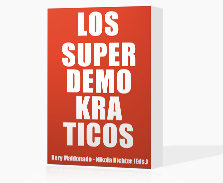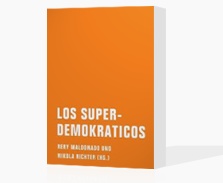The word “globalization” is something you live in a double way in Cuba. We haven’t got at all that hybrid economy, that stands out in many countries and is an unmistakable sign of globalization. In fact, we don’t have an economy at all. That word, economy, has been banned in Cuba for such a long time. First, because the country’s economical responsibility has been held only by the government model promoted by the Cuban Revolution. It tried to build a model for the future of the country, or better said, a model for a future world. As in any other model, in this one economy was capital.
Consequences? Now we’ve got a former president, historical myth and semi-radical left- wing dinosaur –Fidel Castro, yes-, who recognizes in an interview how unfunctional Cuban’s socialist model is. Even though he later retracted himself from his opinions, that statement has connections way too clear with Raúl Castro’s new economic measures: for the first time in 50 years, private property has a value, and it is even incentivised with massive dismissals. How has that a reflection in my normal life? Let’s say: globalization (economically speaking) is a legend, from which I’ve heard a lot and with the same influence on reality as Santa Claus…
Another sign of globalization: growing emigrations. Cuba’s case: again a nationalist-communist-socialist nation (those were the run of names of the revolutionary period) boosts massive migration waves, in specific contexts and under controversial conditions, meanwhile forbids to the common citizen the right to travel abroad by creating an exit permit –and even an entry permit for an emigrated Cuban-. That turns the island into a massive prison, where sea is the border. Then… the migration subject is a very sensitive thing for any Cuban, and it’s quite far away from even looking similar to first world’s privileged citizen modus vivendi.
Last but not least: each one of us is a mosaic made of elements, states North-consented new ideology’s propaganda –that’s globalization, what else? In Latin America things are, or would be very different… We became independent from our colonialist states, by throwing away some continental pieces of this mosaic. Those First Nations inhabitants, plus black people and Chinese immigration, were forced to move out, to head to each country’s surroundings, making the new criolla society white and occidental.
When this process was about to end, many “ethnologists” –in Cuba we do have Fernando Ortiz- started talking about syncretism, transculturization, and, anyway, melting pots everywhere. Nevertheless, that effort of conceiving all mosaic’s ingredients all together in the same soup, was a reflexive movement that we could easily state as fallacious, as something that went too far. It’s including without inclusion: how could we possibly include anything, if everything is already there? How this line of thought evolved and turned positivist, has been clear when 20th century arrived and Cuban Revolution took its place: they decided to get rid of all minorities’ organizations, and to abolish any racial discrimination in a peculiar way: executing positive discrimination at one hand, and at the other hand declaring that no revolutionary could ever be racist. If we analyse how Cuban Revolution has dealt ideologically with the difference between “what-it-should-be” and “what-it-is”, we could learn something about Politics. Unfortunately, we would learn something about “multiculturalism”, that globalized label.
Translation:
Ralph del Valle

 Temas
Temas



